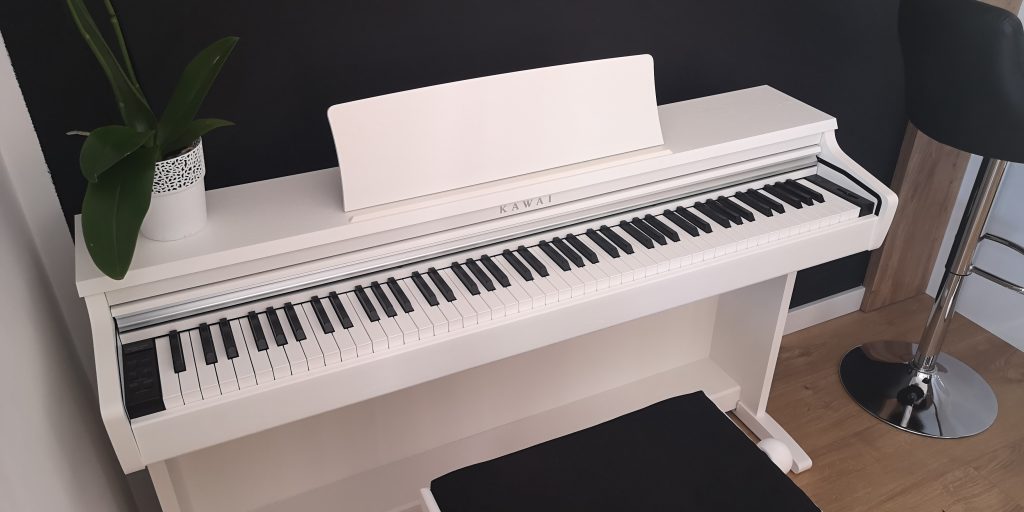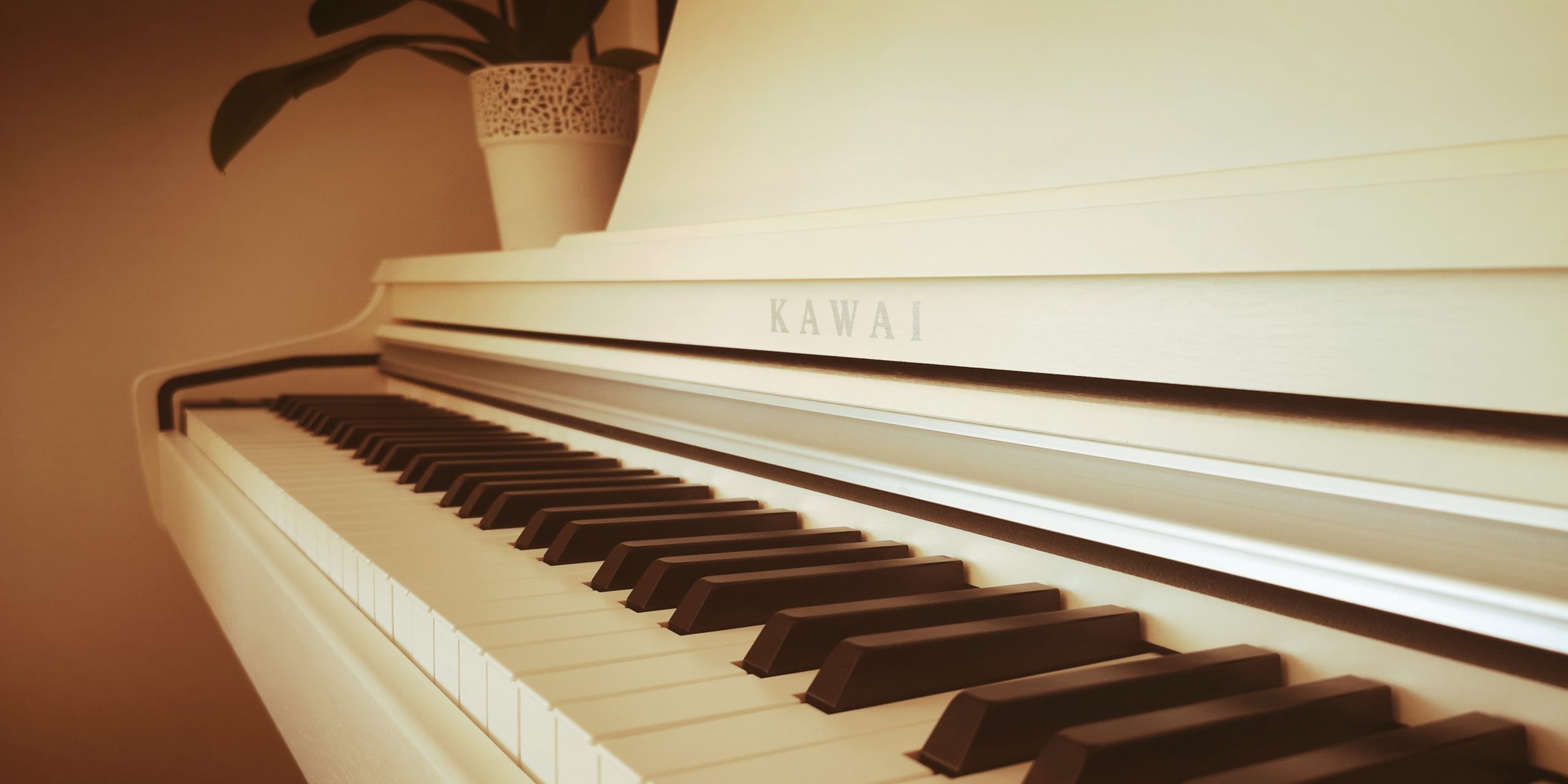Is it worth buying a piano for the home?
In today’s post, we will consider buying a piano for the home.
Piano at home could be used as an instrument to be used for learning and entertainment and generally for spending time with family.
We believe that even if you are not from a family with musical traditions and you do not associate your future with music in a professional sense – you should consider buying a piano at home.
Having this instrument at home has many advantages – among others, it will help in the development of your children and perfectly integrate the family.
Why is it worth having a piano in your living room?
The piano is an instrument with a dynamic learning curve. This means that virtually every household member can learn simple songs or a few chords and play them while singing together.
You do not need a great talent or years of learning to achieve the first results. Piano and other keyboards are much easier to start learning to play than, for example, guitar, ukulele, violin and so on.
Due to the fact that we will obtain positive effects fairly quickly – children are not discouraged as quickly as in the case of other instruments.
The piano is a very universal instrument because the range of tones it generates is very wide. We can get very bass lines up to high medical accompaniments. It allows arranging many popular songs and melodies for both beginners and advanced.
Most composers who write songs or compose music of different genres created their first seeds just on the piano or the piano. This is due to the fact that the instrument has a large tonal range and the possibility of using it both as a rhythmic and melodic instrument.
Scientific research has proved that the use of musical instruments, including learning to play them, perfectly develops both cerebral hemispheres, both the one responsible for abstract thinking and exact sciences, as well as the more humanistic.
Another advantage of the piano is that it is an instrument that can be played by two people at the same time. So it’s a great way to spend time with your children. When one of the parents already knows the basics of playing the piano, he can encourage a child to simply play the bass line together, where it is enough to press a few sounds in a simple pattern.
Which piano should you choose for the start?

Nowadays, modern digital pianos have very good value for money. In the olden days, when only acoustic pianos were available, it was a very exclusive equipment that only rich rich aristocratic families could afford.
Today, virtually anyone can buy a digital piano of excellent quality, which does not differ significantly in appearance and sound from an acoustic piano, but has several interesting advantages.
We strongly advise against buying an acoustic piano as the first instrument because it is a very large expense requiring professional tuning and maintenance, and it may turn out that uninterested children will want to use it. Then we will have a problem with its possible sale.
Digital pianos do not require tuning and are ready to play after folding.
We recommend digital pianos for learning recognized brands such as Yamaha, Roland, Casio, Korg and Kawai. The prices of decent digital pianos start below £ 1,000 – about 750 GBP.
In addition, the Digital Piano usually has a Bluetooth MIDI or MIDI connection via a USB cable. Thanks to this, it can be connected to a tablet or smartphone with a game learning application.
Soon we will post more entries about our piano together with photo and video coverage of the joint game.


The article “Piano at home? Is it worth buying?” is a thought-provoking piece that highlights the numerous benefits of having a piano in your living room. As a doctor, I must say that I wholeheartedly agree with the author’s sentiments. In fact, I would go as far as to say that owning a piano can be a life-changing experience for individuals and families alike.
The article aptly points out that the piano is an instrument with a dynamic learning curve, making it accessible to people of all ages and skill levels. This is particularly important for children, who can develop their cognitive skills and creativity through playing the piano. Research has shown that playing musical instruments can improve both hemispheres of the brain, leading to better academic performance and social development.
Moreover, the piano is a versatile instrument that can be played by two people at the same time, making it an excellent way to spend quality time with family members. My own experience as a doctor has taught me the importance of bonding and communication between family members, and I believe that playing the piano together can foster these relationships in a unique and meaningful way.
When it comes to choosing a piano for beginners, I completely agree with the author’s advice to opt for digital pianos. Not only are they more affordable than acoustic pianos, but they also require less maintenance and tuning. In fact, many modern digital pianos offer excellent sound quality and features that rival their acoustic counterparts.
As an expert in child development, I must emphasize the importance of introducing children to music education at a young age. Research has shown that musical training can improve language skills, spatial-temporal skills, and even IQ levels. Therefore, investing in a piano or digital keyboard for your home is an investment in your child’s future.
In terms of specific recommendations, I would suggest considering pianos from reputable brands such as Yamaha, Roland, Casio, Korg, and Kawai. These companies offer high-quality instruments that are designed to meet the needs of beginners and experienced musicians alike. When it comes to pricing, £1,000 or less is a reasonable budget for a decent digital piano.
In conclusion, I highly recommend reading this article and considering the benefits of owning a piano at home. As a doctor, I can attest to the positive impact that music education can have on individuals and families. So why not invest in a piano today and experience the joy of making music together?
I’d like to express my gratitude to Caroline for her thoughtful and well-researched comment. Her enthusiasm for the benefits of owning a piano at home is truly inspiring, and I couldn’t agree more on many points.
However, I do have some questions about her argument that playing the piano can be a life-changing experience for individuals and families alike. While it’s true that music education has been shown to improve cognitive skills and creativity, doesn’t this benefit depend on various factors such as individual motivation, access to quality instruction, and family support? Moreover, isn’t it also possible that the benefits of playing the piano could be overshadowed by other more pressing concerns in today’s world?
Furthermore, Caroline mentions that owning a piano can foster relationships within families. But what about those who may not have the means or space to accommodate a large instrument like a piano? Doesn’t this limitation negate some of her claims?
Lastly, I’d love to know more about Caroline’s recommendations for pianos from reputable brands. While she suggests considering Yamaha, Roland, Casio, Korg, and Kawai, doesn’t each brand have its own strengths and weaknesses that might make one better suited than another?
“Doesn’t this benefit [of playing the piano] depend on various factors such as individual motivation, access to quality instruction, and family support?” Ah, yes, how trite. How banal. As if the very fabric of human existence were not already beset by a multitude of challenges that render her question almost laughable. We are living in an era where mental health is on the decline, where education systems are failing to equip students with basic skills, and where family structures are being torn asunder by the vicissitudes of modern life.
And yet, Melody Farrell would have us believe that individual motivation, access to quality instruction, and family support are the sole determinants of success? How quaint. How utterly disconnected from reality. We live in a world where the deck is stacked against us, where systemic barriers and institutional failures ensure that only a select few will ever achieve greatness.
And what of her second question: “What about those who may not have the means or space to accommodate a large instrument like a piano?” Oh, the cruel joke that life plays on us. We are expected to believe that owning a piano is within the realm of possibility for all but the most privileged among us? Ha! The very idea is risible.
And finally, her third question: “Doesn’t each brand have its own strengths and weaknesses that might make one better suited than another?” Ah, yes, the infinite complexity of consumer choice. How it warps our minds and confounds our senses. We are but mere pawns in a game of marketing and advertising, forced to navigate a sea of options that seem to shift and change with each passing day.
In the end, Melody Farrell’s questions only serve to underscore the futility of our endeavors. We are but fleeting moments in an infinite expanse of time, struggling to make sense of a world that is fundamentally indifferent to our existence. So go ahead, buy your piano. Play it with all the passion and fervor you can muster. But know this: in the grand tapestry of human experience, your music will be nothing more than a faint whisper in the wind.